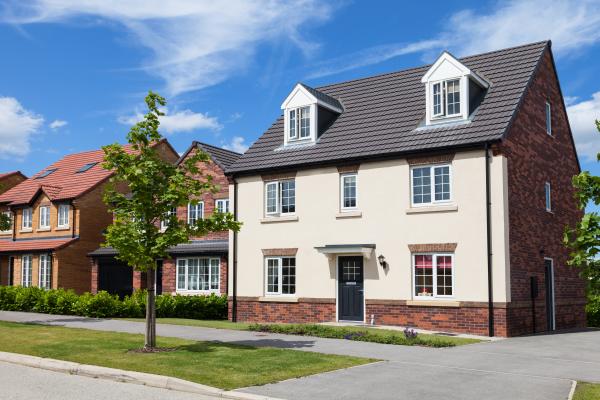
Tax professionals: give Revenue Scotland the power to waive Additional Dwelling Supplement in exceptional circumstances
The Scottish Government is being urged to revisit its opposition to a proposal that Revenue Scotland be given a discretionary power similar to HMRC to waive an additional homes tax in exceptional circumstances.
The proposal has been suggested by the Chartered Institute of Taxation (CIOT) and Association of Taxation Technicians (ATT) in their responses1 to the latest Scottish Government consultation on draft legislation to reform the Additional Dwelling Supplement (ADS) of Land and Buildings Transaction Tax (LBTT)2.
Last year, the Scottish Government consulted on proposals to reform the ADS, seeking views on whether it should introduce an ‘exceptional circumstances provision’ that would mirror a similar provision in the rest of the UK that gives HMRC the power to waive higher rates of Stamp Duty Land Tax (SDLT) in exceptional circumstances, with no right of appeal3.
Such circumstances might include situations where a taxpayer has purchased a new home and been unable to sell their previous main residence in the appropriate timeframe due to circumstances beyond their control, or if they have been unable to satisfy the criteria that the home they are selling was their previous main residence4.
However, despite the measure being supported by 96 per cent of respondents to the initial consultation,, the government has decided not to include it in draft legislation expected later this year5.
The Scottish Government has agreed to proposals put forward by CIOT and ATT that will extend the timeframe for selling and reclaiming ADS from 18 to 36 months. While this will likely address the vast majority of cases where taxpayers have been unable to reclaim a repayment, there remain others that, while rare, can be costly to those taxpayers affected.
In its response the CIOT cited the case of an army doctor who had been posted overseas, had been unable to occupy his previous main residence as a result and ended up with an ADS bill for £22,000, despite not intending to own more than one property6.
The First-tier Tribunal for Scotland, which heard the appeal against the decision to impose ADS, said it had ‘considerable sympathy’ with the case but was unable to ‘do anything other than uphold’ the decision to impose the tax.
Sean Cockburn, chair of the CIOT’s Scottish Technical Committee, said:
“Doubling the window for reclaiming an ADS payment from 18 to 36 months is a sensible step and one that is likely to address many of the cases involving taxpayers who have been unintentionally exposed to the ADS.
“However, the decision to exclude consideration of an exceptional circumstances provision for taxpayers in unforeseen and unavoidable circumstances is disappointing and threatens the original intention of ADS, which is to charge those who intend to own multiple properties higher rates of tax.
“Experience in England and Northern Ireland suggests that such a provision is unlikely to open the floodgates to spurious claims or lead to taxpayers seeking to abuse the system to their benefit.
“Properly administered, it would give Revenue Scotland the ability to exercise discretion and to consider claims for repayment based on their individual merits.
“We would recommend that the Scottish Government thinks again”.
Senga Prior, chair of the ATT Technical Steering Group, added:
“The Scottish Government should think again about its decision to exclude an exceptional circumstances provision from its upcoming legislation.
“Giving Revenue Scotland greater flexibility to consider individual cases on their merits would help ensure consistency across the different property tax regimes in the UK and would allow for greater fairness in the event of taxpayers encountering circumstances outside their control”.
Notes for Editors
1. The CIOT’s response can be read here and the ATT’s, here.
2. The Additional Dwelling Supplement is a six per cent surcharge on the full value of a house purchase that is paid in addition to standard rates of LBTT when a taxpayer owns one or more additional properties. For further information see Revenue Scotland: The Additional Dwelling Supplement.
3. See SDLTM09807 - SDLT - Higher rates for additional dwellings: Condition D - exceptional circumstances
4. If a taxpayer purchases a new main residence, but has still to sell their previous one, they are required to pay the ADS and reclaim this once they have sold their old residence.
5. The Scottish Government’s reason for rejecting the exceptional circumstances provision was set out on page 18 of its response to the December 2021 consultation: The Land and Buildings Transaction Tax Additional Dwelling Supplement: A Call for Evidence and Views: The Scottish Government’s Response and Summary of Responses.
“While the Scottish Government notes the preference from respondents to introduce such a provision, an exceptional circumstances provision will not be introduced. This is on the basis that such a provision would create a significant degree of uncertainty around the application of the legislation, would be operationally difficult to administer and would attract an inherent avoidance risk.”
Page 17 notes that “Of the 27 respondents to question 16, 96% indicated that they thought there was a case to legislate for an exceptional circumstances provision”.
6. The details of the specific case referred to here, Dr Andrew Christie v Revenue Scotland can be found here.















